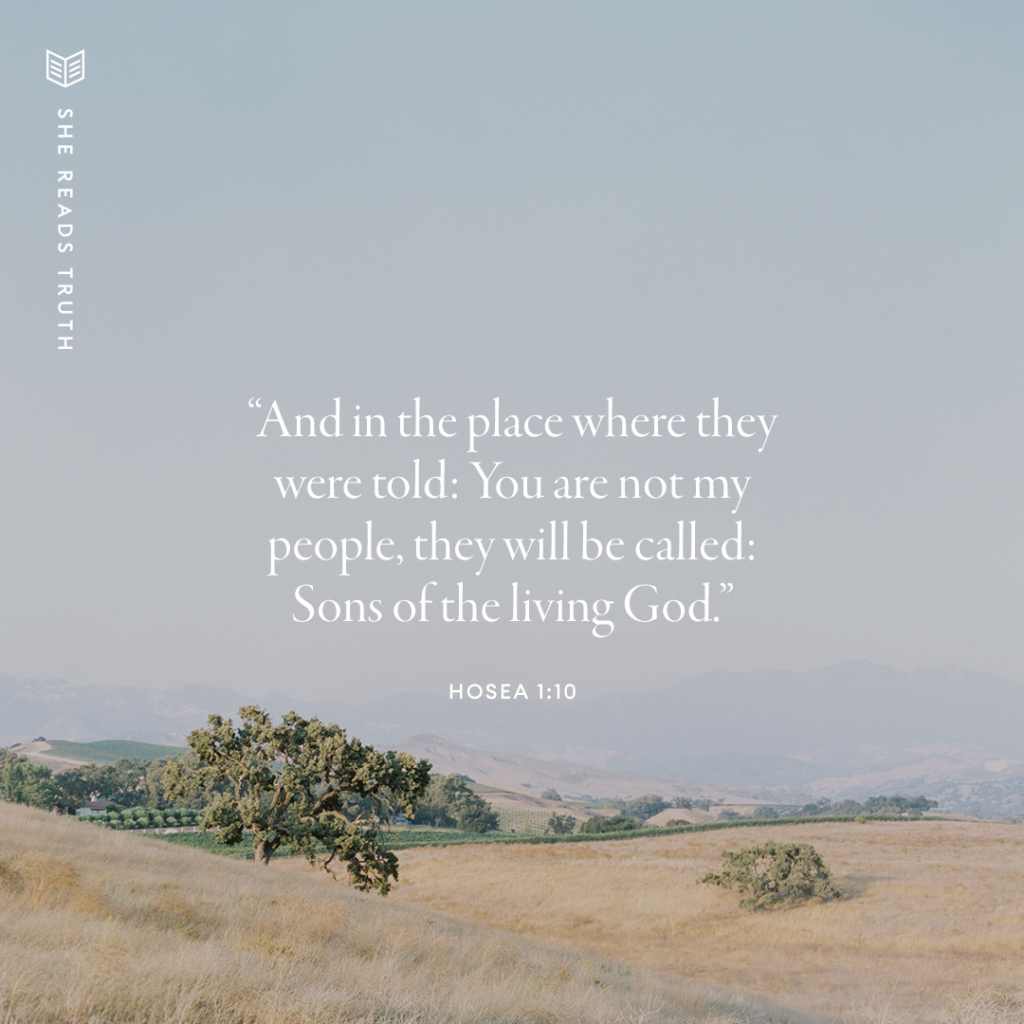I spent many years being a wanderer. In many ways, I still am.
My heart is easily distracted by false loves, things I imagine will bring me life when all they really do is pry my eyes from the truer life I’ve already been given.
When David and I got married, a family friend—a man his father’s age who’d known David since he was a boy—pulled him aside a day before the ceremony. The words he spoke were not merely advice; they were a mandate, an imperative. “Be faithful to your wife,” he said. “You aren’t immune to infidelity; don’t give yourself the opportunity.”
Not a year goes by where we do not remember his advice, admitting our brokenness to one another and praying God’s grace on the promise we made all those years ago.
At heart, I am Gomer. I am a woman who sabotages love in spite of what I know to be true. I did it when I was younger, “looking for love in all the wrong places,” as the old country song puts it. And I do it now, looking for love in the praise of others, in social media likes. I hear the call of my false loves every day. And every day, I hear the faithful call of my one true love, the God who made me for love.
Here is what the Lord said to the prophet Hosea when Israel was going her adulterous way:
Go and marry a woman of promiscuity,
and have children of promiscuity,
for the land is committing blatant acts of promiscuity
by abandoning the LORD.
—Hosea 1:2
The word “promiscuity” here is a heavy word. Some versions translate it as “wife of whoredom,” “wife of harlotry,” or even “prostitute.” The woman God was calling Hosea to pursue was not just double-minded; she was actively and consistently deceitful, disloyal, and devious. She was all of us, without God.
Israel was caught in a cycle of sin, and God was ready to get her attention. Hosea was to show Israel her sin, literally, by taking an unfaithful wife and being faithful to her.
God’s judgment on His unfaithful people was more than clear. They were not fit to be His people. They were not fit to be His, period. And yet…
Yet the number of the Israelites
will be like the sand of the sea,
which cannot be measured or counted.
And in the place where they were told:
You are not my people,
they will be called: Sons of the living God.
—Hosea 1:10
The Lord, the perfect and faithful One, would have mercy, grace, and compassion on Israel, the always-unfaithful ones. God said of Israel, “I will deliver them by the LORD their God. I will not deliver them by bow, sword, or war, or by horses and cavalry” (Hosea 1:7). This would be no worldly rescue. This would be the promised salvation of God’s people, a promise established from the first sin of the first man and woman in the first book of the Bible (Genesis 3:15).
The consequences of sin are real and painful, but the rescue would come—not by the merit of those being rescued, but because of the merciful grace of God.
And that, friends, is the theme of this book we begin reading today. The book of Hosea is a treatise on the unworthiness of sinners and the graciousness of God. We are wanderers, all of us. We run after false loves while the Father runs after us. But, praise the Lord, His faithfulness is greater than our sin (Titus 3:5).



❤️❤️
Awesome
❤️
❤️❤️
Amen❤️
Jane Smith, I completely understand what you mean! When I first read it, I was pretty horrified by the language.
One thing that I noticed at the beginning of the book of Hosea is that it takes place during the years where Uzziah, Jotham, Ahaz, and Hezekiah were kings of Judah. I recognized those names from 2 Kings (beginning in chapter 15) and 2 Chronicles (beginning in chapter 26). By reading these chapters, it helped me gain a bit more perspective on why God might be talking this way to Israel and Judah – the people that he devoted himself to and loves so deeply. There is even further background when looking into previous chapters, but I think these particular people in history give a good idea of what the people were like. For example, King Ahaz rejected the Lord and worshipped Baal, encouraged all the people to sin against God, and even participated in child sacrifice. 2 Chronicles 28 talks about how the army of Israel behaved so viciously that “all of heaven is disturbed.” Also note that this behavior and frequent rejection of the Lord had been going on for decades, especially in Israel.
Knowing this background might not make the chapters easier to read, but it might help with perspective. God is so holy and just that he simply can’t allow this behavior to go on among his people. It must be punished, and things must be made right. And we should get a glimpse of that in the second half of Hosea chapter 2 :)
Thanking God for His mercy this morning!
❤️